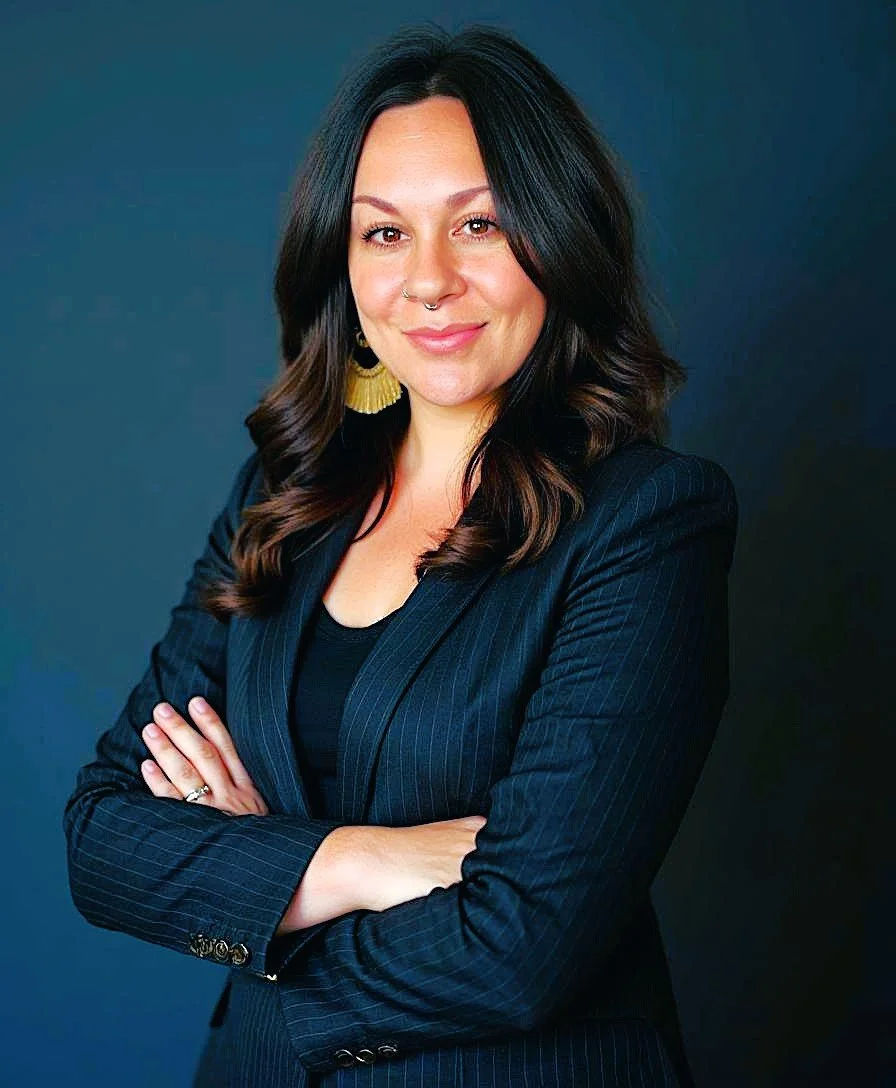
Meet your therapist
Therapy is not about fixing you because you aren’t broken.
Its about helping you create a relationship with yourself that is healing and sustaining, for today and for tomorrow.
Sara Walter Shihdanian, she/they LMHC in Washington, LPC in Oregon
-
I’ve always been passionate about personal empowerment and autonomy.
As a non-directive therapist, I trust my clients to bring to session what they are ready to address. We explore together to make change but I generally see my role as the navigator on our therapy road trip and you as the person in the drivers seat.
You’re the one who knows you best and you are the only expert on you, regardless of my expertise in mental health.
-
Over the years, I've been entrusted with incredible triumphs of bravery, growth, and transformation. I've been gifted the chance to bare witness to incredible resilience and strength of spirit while working in several different settings including an inpatient facility for under-served youth, a women’s long term in-patient substance use center, and while helping launch the behavioral health department at an out-patient clinic for the greater community of those impacted by HIV.
Admittedly, gender identity is a topic that is close to my heart. That out-patient position gave me the opportunity to work for three years under a supervisor who is a gender therapist with lived experience, which not only allowed me to hone my passions like I’d always dreamed and to seriously level up the quality of my training, but to also learn just how powerful and transformative it is to work and serve within my own community.
I have extensive experience working with people with complex and relational trauma, depression, anxiety, women's issues, life changes, relationship challenges, infectious disease, grief, and those facing systemic oppression. I’ve also completed the Certified Clinical Trauma Professional training, Cognitive Trauma Professional for PTSD training, Brainspotting Phase I and II, and am Washington State Telemedicine Training Certified.
-
My specialties are trauma and sexual + gender diversity.
In order to do this work effectively, an intersectional praxis is needed: many of our social institutions are rooted (and unfortunately invested) in our marginalization, which research has shown time and time that for individuals and the culture at large, the psychological impact of this is inherently traumatic.
This means that a cornerstone of my work then involves disrupting the power dynamics of therapy when possible by using a collaborative, trauma-informed approach with all clients. Regular language? This means that I'm generally non-directive and that although I'm an expert on mental health, I'm not the expert on you, your experiences, or what’s best for you. I'm simply here to join you on the journey.
I strive to be consistently inclusive, intentional, teachable when I get it wrong, and accountable in and outside of my work role. And this can only be done as often as I am willing to consistently decenter myself and my experiences as being the norm.
My hopes are that you find our sessions to be a space of affirmation, where you can stop carrying the weight of all that the world is putting on you, where you don't have to keep teaching or care taking, where you can just let all of this out if even just for an hour at a time.
-
Therapy can be tough!
Opening up about deeply personal things is often uncomfortable, even if we are driven to let it out and get relief, driven to heal and feel better, even if we generally feel safe with the person we are sharing these thoughts and feelings with.
So I always seek to provide you with a reliable and safe environment, no matter what we’re discussing; and to always be non-judgmental, authentic, compassionate, inclusive, and kind.
-
I’m a queer, non-binary femme, who is a late-diagnosis neurodivergent. I’m White and Middle Eastern and grew up working class. I am inherently a curious and eccentric person as well.
I have a deep love of play, physical comedy, and am always seeking to find ways that we can fold silliness back into our adult lives despite how convention, responsibility, and routine aim to squeeze it out.
Lastly, as one mentor once said “And like a real millennial, my pets (cats) are my kids and my plants are my pets”.

Everyone has a story.
The challenge is knowing yours and then figuring out how to write it in a way that helps you get to where you want to go, instead of getting stuck in a story that keeps causing you pain. Sometimes even the smallest changes in the stories we tell ourselves have the power to reconfigure an entire lifetime.
Other times it can be just letting ourselves stay present with those stories until the intensity of the emotions starts to burn out, letting the emotions take their natural course of peaking and then passing on.
My perspective as your therapist, is that the important piece is figuring out what personal empowerment means to you, learning what stories, relationships, and things help keep you within arms reach of it, and then learning how to help you finally release the things that have been keeping you from it.
I know what’s like to take those first, scary, unpredictable steps. I know what it feels like to keep showing up and doing the work, especially on days when it feels like there’s nothing left in the tank.
While our experiences are different of course, my history with relational trauma, dysfunctional relationships, self doubt, and being a part of the LGBTQ+ community give me personal insight into what some of this might be like for you. This has also given me the chance to be a client struggling through those things.
Therapy during those times has given me the opportunity to have more support , to see myself in a new way, to let go of needing permission. I’ve also has some experiences with therapy that were just plain unhelpful too! But both sides of this help to inform how I approach you and my work.
Most importantly, this helps me to remain open to your feedback throughout our time together. That way our sessions can maintain uniquely tailored to what you need and it protects, and provides a structure for, the high level of quality and effectiveness that we both want for you in session.

